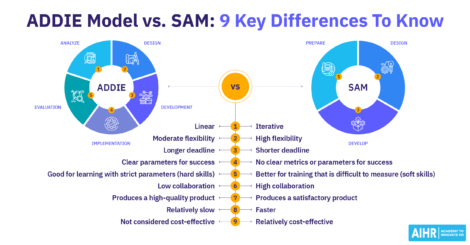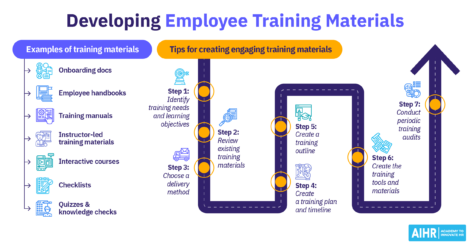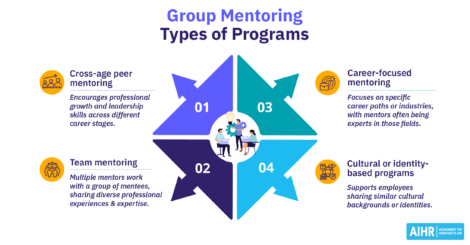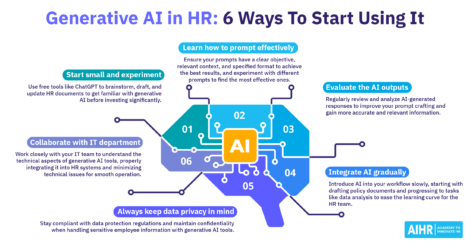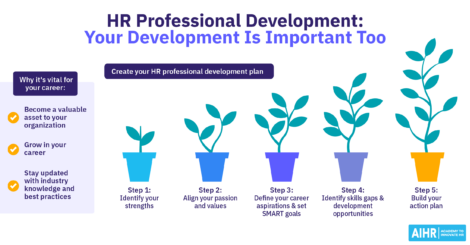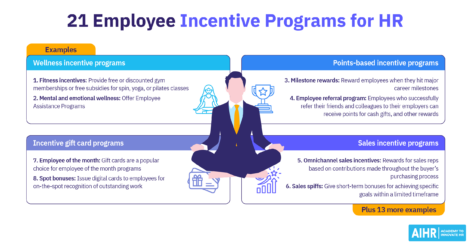7 Reasons Why you Should Invest in the Professional Development of Employees

When the financial crisis started in 2008, a lot of accountancy firms either stopped or slowed-down hiring new accountancy student. These students normally started working at these firms while doing their university studies. The reason was simple: “we have too many people on our payroll, so why would we invest in the development of new recruits?”
Now, quite some years later, there’s a shortage for accountants with 5-8 years of work experience. And everybody is wondering: “why are other firms poaching this target group in my firm?” This is the first reason why you should invest in the professional development of employees. Here are 6 more.
1. Spreading Knowledge
Your goal should be to create a workplace environment that encourages continual learning. Encourage employees to attend training, read professional magazines and books, attend webinars, and otherwise learn as much as they can.
Research shows that these learning environments work. Organizations with effective learning environment demonstrate greater organizational effectiveness (Tannenbaum, 1997).
When employees complete their training, they can then tell others in similar positions in addition to those in other areas of the organization about what they learn. This is the equivalent of compound interest for your training dollars: one employee can train colleagues without you having to spend money on training for all.
2. Employees want to learn
Job satisfaction rises when employees are confident in their ability to do their jobs well. When they are trained extensively in how to do their jobs effectively, they are often happier. When they are happy, they are more likely to want to stick with the organization longer. When they do not go looking for job satisfaction at other organizations, you don’t have to spend money on hiring, on boarding, and training their replacements.
A few ideas for how you can train employees without breaking the training budget include mentorship programs, coaching, job shadowing, and cross training. Mentorship programs in particular, make the most of the knowledge that is already within the organization.
Interestingly, several studies have documented the positive effects of mentoring on the mentors themselves (Gordon & Maxey, 2000). These effects include better performance for the mentors themselves (Yosha, 1991).
There’s also an obvious benefit for the mentee. According to Robert Half, “gaining practical knowledge, institutional insights and hands-on guidance is a highly effective way for mentees to become more valuable and versatile employees.”
3. Job seekers know the company’s reputation
When an organization has a good learning and development program, it builds a reputation as an employer that cares about the education of its employees and that you invest in them as individuals as well. Your company’s customers will also benefit from a good training program for your employees because they receive high-quality care that is personalized to what they need.
Companies like Great Place to Work include a company’s competence in employee development as a criterion for their ranking. In addition, your learning and development budget might impact your Glassdoor rating. Here’s how.
One of the top reasons why Millennials quit their job is a lack of learning and growth opportunities. In a Gallup survey, 87% of Millennials surveyed rate professional or career growth and development opportunities as important to them in a job. Your employees are in the end your brand ambassadors at every conference and training seminar to which you send them.
4. The right candidates want to work for you
In line with the previous, the best of the available job applicants will want to work for a company that provides for their professional education. While money and other benefits are certainly important, they form only part of the picture.
Many of the most ambitious and talented employees want to work for an organization that will offer them training opportunities and career advancements that they cannot get elsewhere. This is also why traineeship programs have become so popular.
If you want to hire employees who will stick around longer, develop a good training program. Show them how they can develop professionally, and provide them with several potential career pathways.
5. L&D programs can increase retention rates
Workers definitely want to know they are appreciated and that their efforts are noticed. They also want to know they are positively impacting the company and their customers. They want to learn about how to do their jobs well and to become experts at them.
Additionally, they desire to become more well-rounded, and they want to be challenged every day. If your organization cannot provide for these needs, they will start looking elsewhere if they feel bored or like they don’t have much of a chance of advancing within the company.
With a good earning and development program, you increase the likelihood that workers’ enthusiasm for their jobs and the company will increase, along with their sense of loyalty.
6. Professional development makes it easier to prepare future managers
Future company leaders need to learn as much about the company as they can. This is where great mentorship programs, cross-training, and management programs are helpful in making succession planning easier.
These types of training opportunities provide a better understanding of how to successfully balance the needs of the organization, customer requirements, and the state of the market. They will become better decision makers, which helps the company thrive.
If you want to read more about how to measure the effectiveness of training programs, click the link!
Weekly update
Stay up-to-date with the latest news, trends, and resources in HR
Learn more
Related articles
Are you ready for the future of HR?
Learn modern and relevant HR skills, online






